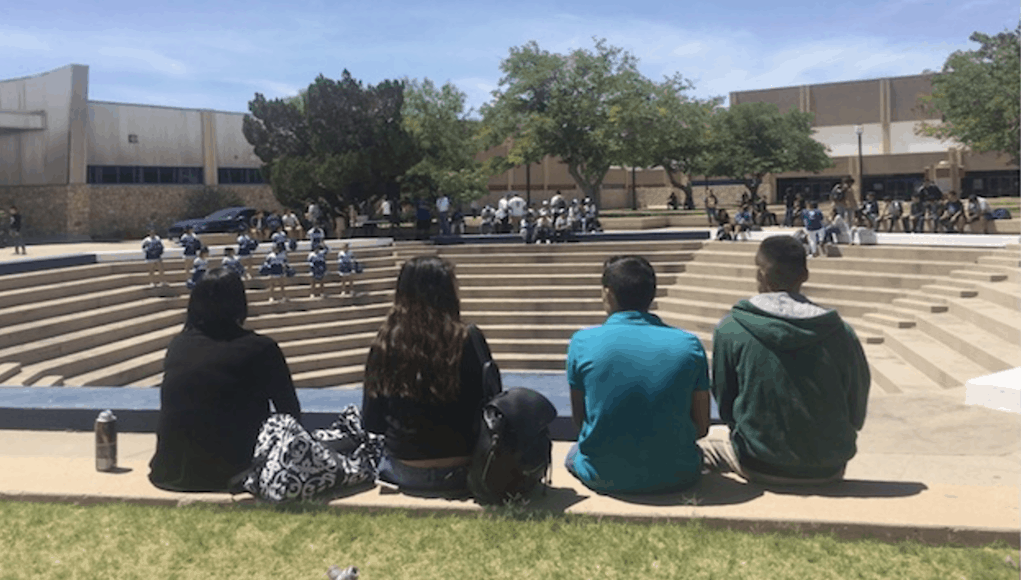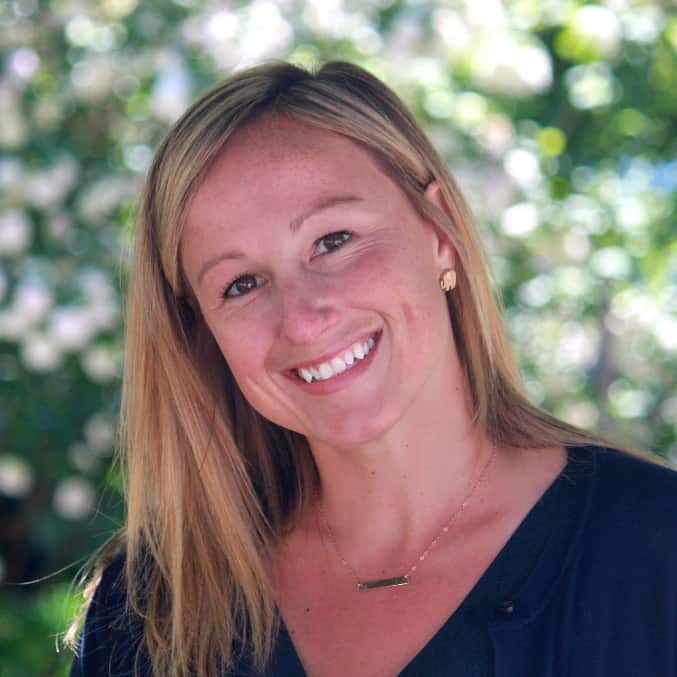Transforming Border Learning Experiences: New Tech Network in El Paso

By Emily Liebtag and Tom Vander Ark
“We are the new thing; we are what’s happening; we have school reform happening right now. We can make a difference. This is the tool to fix the problem.”
Mauricio Olague grew up in the Bowie High School neighborhood just east of downtown El Paso and just north of the border. After two decades of teaching and service as a community artist, Olague reluctantly joined a project to form a new academy at Bowie High which serves 1,400 Hispanic students nearly all of whom live in or near poverty and learned Spanish as their first language.
Skeptical at first, Olague heard about teaching integrated projects at Oso New Tech at Bowie High and decided to give it a try. He teaches a unique art and biology mash up and loves the new challenge of team teaching. As a lifelong resident of the neighborhood, he sees this high engagement approach motivating students and preparing them for what lies ahead.
Diego Medina teaches English in a course that includes World History. He loves the opportunity to incorporate literature into history and study the geography of historical texts.
As a new academy, Oso New Tech serves 130 9th graders. A wing of Bowie High was renovated by tearing down walls and updating double classrooms to support the integrated teaching approach of the New Tech Network.
Celeste Cano teaches Algebra, one class not in an integrated block. It is taught as problem-based course where tasks are one or two days rather than two or three weeks.
Academy director Amanda Burruel is proud of the Oso teachers, most of whom were new to project-based learning this year. While most of the side conversations are in Spanish, the faculty decided to focus on English in class and intentionally focus on student literacy across subject areas.
Project 2020 pairs four Oso students into a peer support group to ensure graduation in three years. The picture below is a visualization of good things to come.

Borderplex Solutions
El Paso is part of three million person metroplex that spans the Mexican border and wraps around the southern tip of the 7,000 foot Franklin Mountains. Over the last three years under the leadership of Superintendent Juan Cabrera, schools have been shifting away from test-prep to active learning–a combination of personalized, project-based, and social emotional learning with a strong commitment to dual language.

In addition to active learning, the other three pillars of the EPISD 2020 Strategic Plan include great schools in every neighborhood, community partnerships, and leading with character and ethics. One initiative that supports all four pillars is the district’s partnership with the New Tech Network, a group of 200 project-based schools.
Superintendent Juan Cabrera, sites partnering with this non-profit “as one of the most transformative changes we have made.” The goal of the NTN model is that students achieve deeper learning outcomes and often do so through meaningful, integrated projects. Teachers and administrators in the district expressed similar sentiments as Superintendent Cabrera.
Principal DeGraaf at Cobra New Tech and the New Tech teachers on site shared that they, too, have been shifting their own learning to be more project-based and never felt more energized by their profession and practice. The enthusiasm for a refreshed approach to teaching and learning that is more student-centered is trickling throughout the schools in EPISD, not just those that are a part of the New Tech Network. Teachers at Burges High School viewed Most Likely to Succeed and started a teacher-led effort to infuse more integrated projects into their instruction. Along with the support of Principal Woods and the movement in the district to support innovation, they are crafting their own vision forward for what PBL will look like at Burges.
EPISD next fall will also be home to the first all-girls STEAM New Tech school in the country, which will be led by Principal Dr. Cynthia Ontiveros and called the Young Women’s STEAM Research & Preparatory Academy.
We chatted with several NTN leaders to learn more about the EPISD changes and forward momentum.
In this podcast, you’ll hear from:
- Nick Kappelhof, New Tech Network Director, District and School Development
- Scott Gray, New Tech Coordinator, Innovation Design and Development
- Celeste Cano (Algebra teacher)
- Mauricio Olague (Art teacher in an Art and Biology combination class)
- Diego Medina (English teacher in a World History and English combination class)
For more, see:
- An Ambitious Plan to Make the Nation Proud of its Public Schools
- Active Learning Requires Innovative Learning Spaces
- Partnering with Parents on SEL
- Embracing the Border Economy
- New Tech Network Powers A Common Learning Model & Unique Missions
Stay in-the-know with all things EdTech and innovations in learning by signing up to receive the weekly Smart Update. This post includes mentions of a Getting Smart partner. For a full list of partners, affiliate organizations and all other disclosures please see our Partner page.




0 Comments
Leave a Comment
Your email address will not be published. All fields are required.